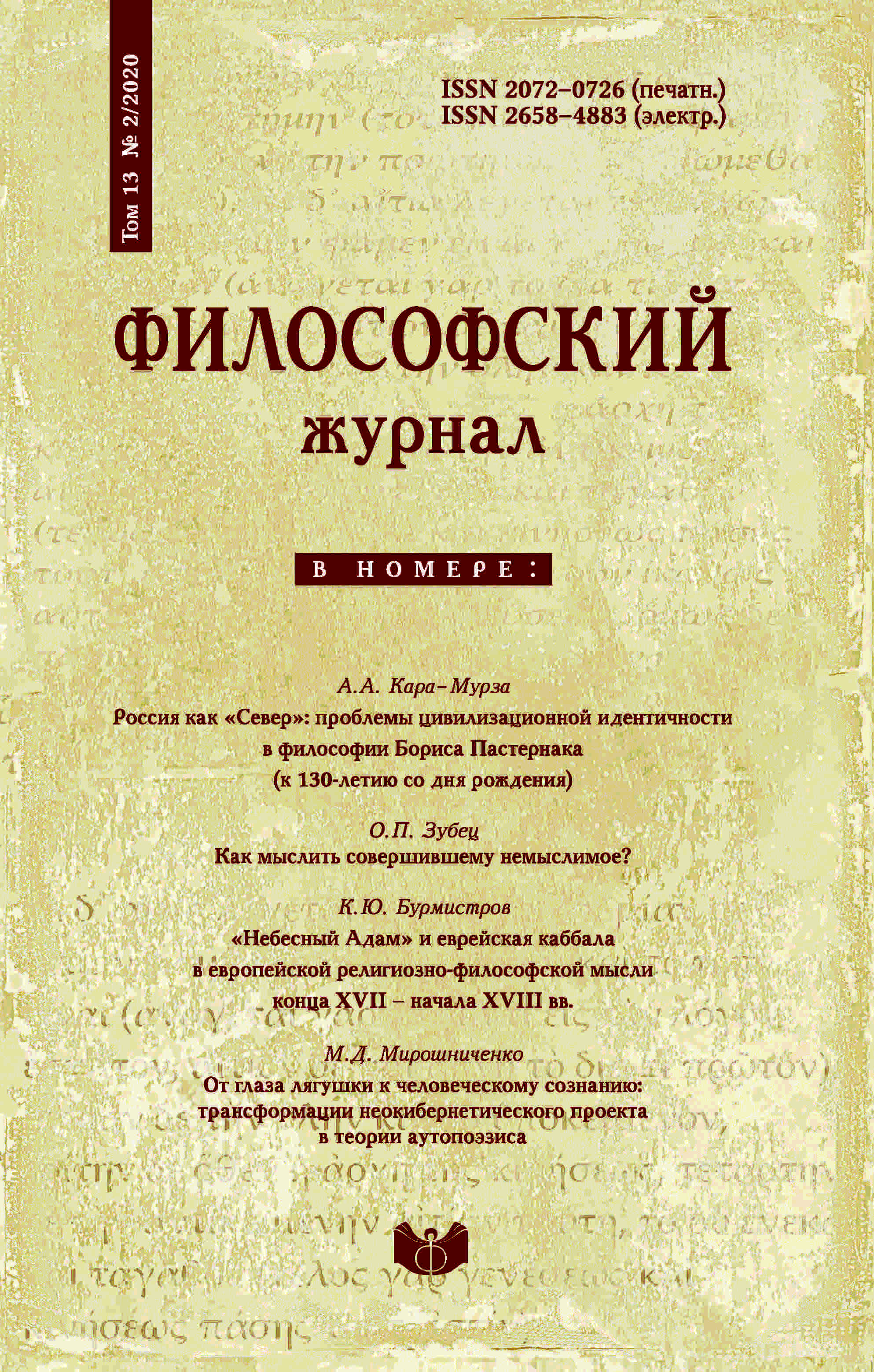“Heavenly Adam” and Jewish Kabbalah in the European religious and philosophical thought of the late 17th – early 18th centuries
DOI:
https://doi.org/10.21146/2072-0726-2020-13-2-49-67Keywords:
Christianity, Kabbalah, Jewish philosophy, Judaism, Christ, Adam Kadmon, LeibnizAbstract
The article analyzes various interpretations of the concept of the primordial archetypal man (Heb. Adam Kadmon), borrowed by European thinkers of the 17th – early 18th centuries from the tradition of Jewish mysticism (Kabbalah). The European authors who had acquainted themselves with this idea through contacts with kabbalists, their writings and translations of their works actively used it in developing their own views. Drawing a parallel between Adam Kadmon and the “eternal Christ”, in the image of which the world and man were created, these thinkers sought to substantiate the idea of the unity of mankind and the Church, as well as the possibility of universal salvation. Adam Kadmon, or “the eternal Christ” is understood by them as “a single source, or the only reason for all creation”, “the perfect reason for all perfect reasons”. The ideas adopted by European authors from Kabbalah had a significant impact on their understanding of the nature of the Trinity and its hypostases as modes of a single substance, as well as on a metaphysical explanation of the imperfection of the world and the meaning of the Incarnation as the restoration of the original perfect figure of the eternal Man.






